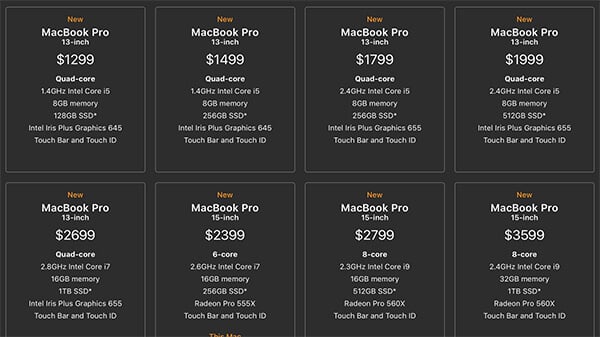

The biggest difference was seen in an 3K 4K R8D RAW export, which took the 13,57GB MacBook Pro 8 seconds to complete, while the 16GB MacBook Pro was able to complete in 5,59 seconds, a time at which gives a 9-inch MacBook Pro Core i16 from 2019 with 32GB of RAM. The test Max Tech Xcode which mimics code compilation put the 16GB model at 122 points, compared to 136 for the 8GB model, with the lowest score being the best.

The Geekbench and Cinebench benchmarks did not demonstrate a difference in performance between the 8GB and 16GB models, but other tests designed to maximize RAM usage did make the difference between the two capabilities clear. The video includes a number of benchmarks, ranging from Geekbench and Cinebench up to RAW export tests. max tech He has just made an interesting video comparison where the performance between an 1 GB MacBook Pro M8 and a 1 GB MacBook Pro M16 is appreciated. So the upgrade options for all of them are limited to SSD storage space and RAM capacity. Let's look at some performance tests of the same Apple Silicon model with the two available memory capacities.īoth Mac mini and New Age MacBooks Apple silicon that we have available in the market use the same M1 processor. Terrible doubt and more knowing that this memory cannot be expanded a posteriori. So the dilemma is reduced in that if you think to buy one of the new Macs with M1 processor, what RAM capacity to choose, 8 or 16 GB. We have the proof in the company's latest iPhone 12 and iPads, which perform wonderfully well without requiring a lot of memory, but I still have my doubts. We agree that ARM processors manage RAM in a very particular way, without requiring large amounts of memory. I still don't quite understand why an Apple Silicon cannot be expanded beyond 16 GB of RAM.


 0 kommentar(er)
0 kommentar(er)
